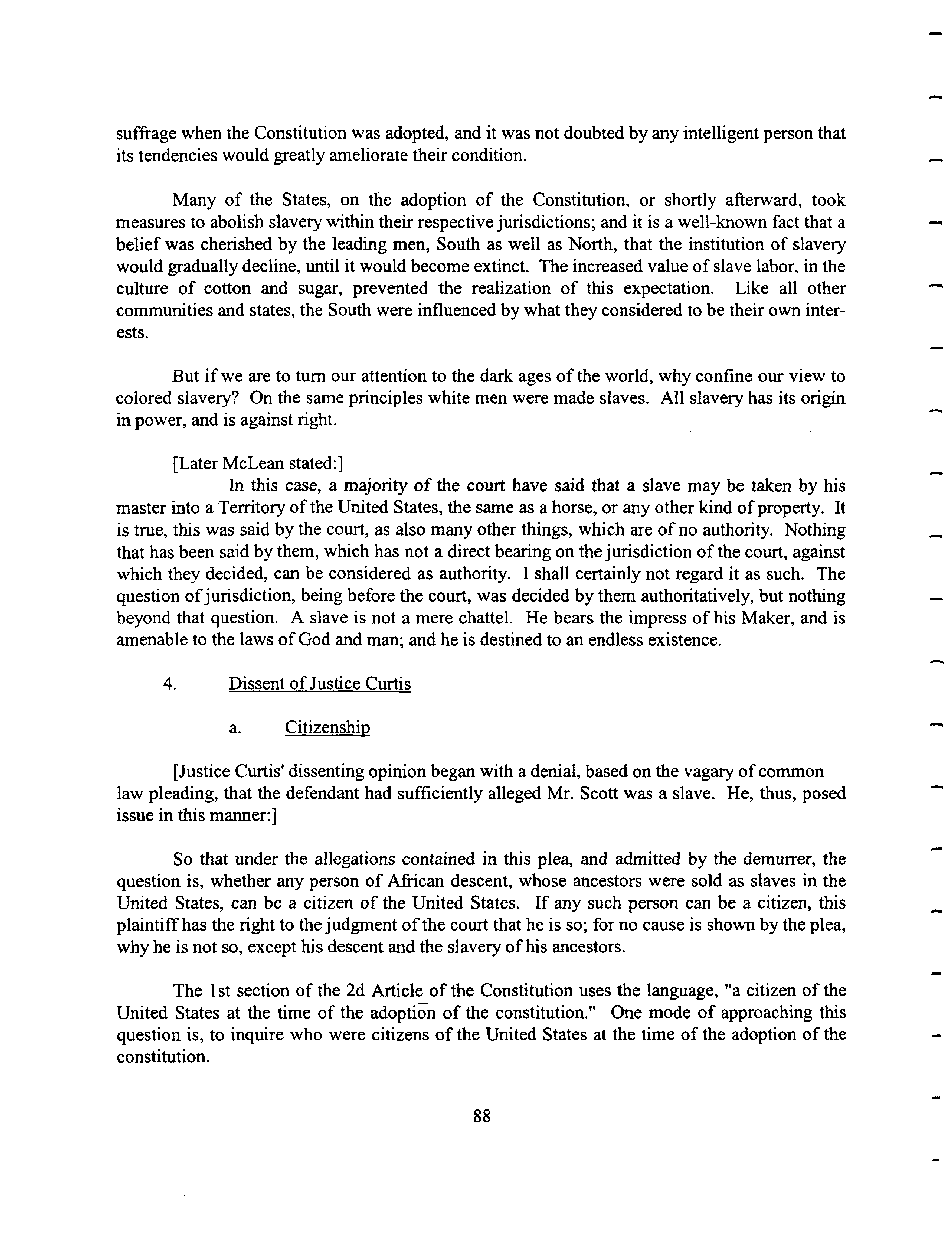|
suffrage when the Constitution was adopted, and it was not doubted by any intelligent person that
its tendencies would greatly ameliorate their condition.
Many of the States, on the adoption of the Constitution, or shortly afterward, took
measures to abolish slavery within their respective jurisdictions; and it is a well-known fact that a
belief was cherished by the leading men, South as well as North, that the institution of slavery
would gradually decline, until it would become extinct. The increased value of slave labor, in the
culture of cotton and sugar, prevented the realization of this expectation. Like all other
communities and states, the South were influenced by what they considered to be their own inter-
ests.
But if we are to turn our attention to the dark ages of the world, why confine our view to
colored slavery? On the same principles white men were made slaves. All slavery has its origin
in power, and is against right.
[Later McLean stated:]
In this case, a majority of the court have said that a slave may be taken by his
master into a Territory of the United States, the same as a horse, or any other kind of property. It
is true, this was said by the court, as also many other things, which are of no authority. Nothing
that has been said by them, which has not a direct bearing on the jurisdiction of the court, against
which they decided, can be considered as authority. I shall certainly not regard it as such. The
question of jurisdiction, being before the court, was decided by them authoritatively, but nothing
beyond that question. A slave is not a mere chattel. He bears the impress of his Maker, and is
amenable to the laws of God and man; and he is destined to an endless existence.
4. Dissent of Justice Curtis
a. Citizenship
[Justice Curtis' dissenting opinion began with a denial, based on the vagary of common
law pleading, that the defendant had sufficiently alleged Mr. Scott was a slave. He, thus, posed
issue in this manner:]
So that under the allegations contained in this plea, and admitted by the demurrer, the
question is, whether any person of African descent, whose ancestors were sold as slaves in the
United States, can be a citizen of the United States. If any such person can be a citizen, this
plaintiff has the right to the judgment of the court that he is so; for no cause is shown by the plea,
why he is not so, except his descent and the slavery of his ancestors.
The 1st section of the 2d Article of the Constitution uses the language, "a citizen of the
United States at the time of the adoption of the constitution." One mode of approaching this
question is, to inquire who were citizens of the United States at the time of the adoption of the
constitution.
88
�
|

